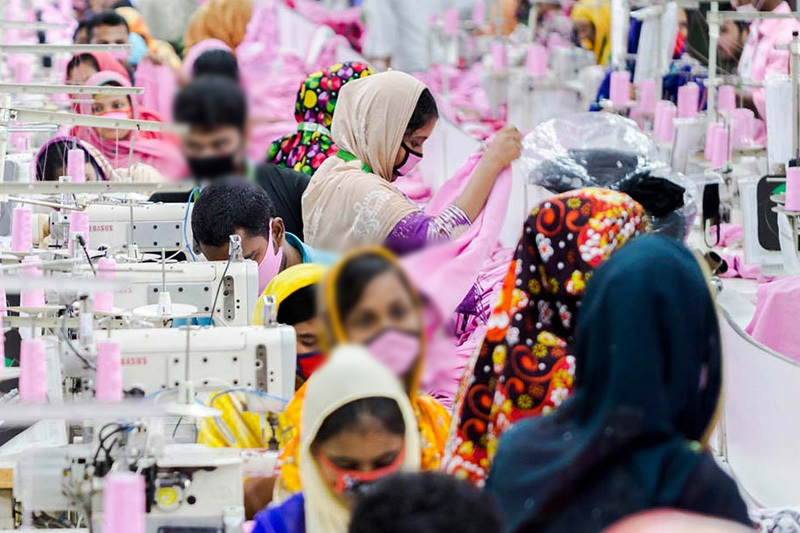
‘Starvation Is Next’: Violent Protests Engulf Bangladesh As Garment Workers Demand Higher Wages
Bangladesh is a major supplier of clothing to fast fashion brands. But it has one of the lowest minimum wages for garment workers, which has remained set at 8,000 taka ($73) since 2018.
Over the past week, tens of thousands of workers have staged demonstrations that, according to unions and news reports, has left at least one young garment worker dead.
Last month, Rasel Hawlader, 26, was killed in police firing while protesting for wages and allowances at the Maleker Bari area under Basan police station in Gazipur.
Struggle To Cover Basic Costs Amid Inflation
Garment workers making clothes for high-street brands say they are facing starvation and are having to steal and scavenge food from fields and bins to feed their children.
The Bangladeshi Ministry for Labour and Employment has proposed a new monthly minimum wage of 12,500 taka ($113) for the garment workforce of 4 million people.
But the amount is significantly lower than the 23,000 taka ($208) that workers’ unions say is the minimum needed to cover basic living costs amid spiralling inflation.
Keep Reading
Lower Wages, Harsh Conditions, Harassment
“The leggings I make retail for more than my entire month’s salary,” said one worker with young children who wanted to stay anonymous. “There are huge profits being made on our backs.”
Another worker, Rojina Akter, highlighted the harsh conditions and harassment at the factory, adding her wages did not cover even basic food costs.
Further protests are expected during a two-week review period before the new figure is confirmed by Sheikh Hasina, the Prime Minister of Bangladesh.
Fashion Brands Need To Step Up Support Too
According to Monnujan Sufian, the state minister for labour and employment, the government was engaged in negotiations and was even considering ration cards to help cover living costs.
Meanwhile, a number of fashion brands that source clothes from Bangladesh have expressed their support for the garment workers’ calls for a higher minimum wage.
However, labour rights groups argue that it would require the brands to agree to pay more for their clothing orders for higher compensations to become a reality for the workers.




